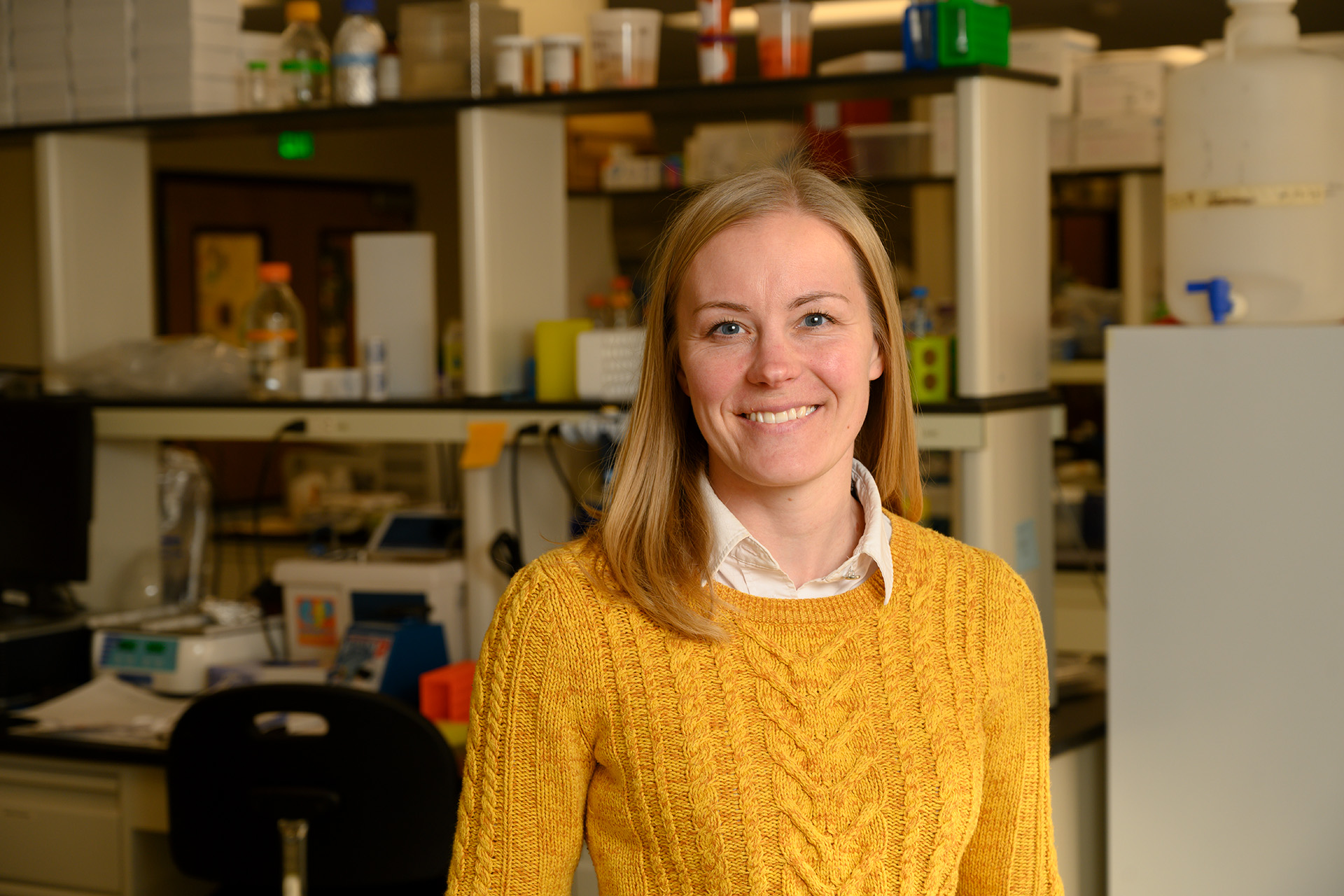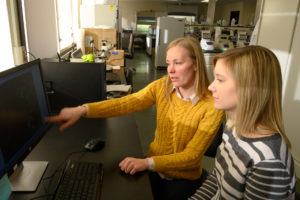
Refusing to take all the credit for her research projects, Dr. Kelly Santangelo attributes many of her accomplishments to collaborations with colleagues. An associate professor in the Department of Microbiology, Immunology, and Pathology, Santangelo seeks out collaboration opportunities beyond her home department, engaging faculty across campus. Even as she is recognized as the 2019 recipient of the Zoetis Award for Veterinary Research Excellence, her priority is acknowledging the human capital that contributes to the success of her work.
“This award allows me to showcase all of the people that I work with,” Santangelo said. “It’s just the perfect opportunity to say thank you to them.”
The Zoetis Award fosters innovative research by recognizing outstanding research effort and productivity, and Santangelo’s academic passion drives two main research themes: improving the efficiency and accuracy of diagnostics and providing better quality of life by maintaining mobility.
Better, faster diagnostics
Empathetic to the challenges of owning an animal with medical issues, Santangelo strives to find ways that help clients make more informed decisions about their pets’ health. Often, one of the hardest aspects of diagnosing a problem is how long it takes – owners struggle with not knowing what’s wrong and having to wait for answers.
“If there’s a way we can speed up the process, I want to be involved in that,” Santangelo said. “Some diagnostics are not definitive, and I want to find a way to provide the highest confidence index possible.”
With more accurate information about what issues their pet is experiencing and steps they can take to remediate medical problems, owners can make better decisions that make good financial sense and have a higher probability of improving their animal’s overall health.
Cultivating collaboration
In recognition of her 2019 Zoetis Award for Veterinary Research Excellence, Dr. Kelly Santangelo will kick off the 21st annual CVMBS Research Day with a keynote address on Saturday, Jan. 25 at the C. Wayne McIlwraith Translational Medicine Institute. She’ll talk about all the “little things” that have to come together to make a research project successful, and how at the end of the day, it’s the people involved that bring the work together.
Maintaining mobility
With a focus on the musculoskeletal system, Santangelo aims to find ways to maintain pain-free, independent mobility for humans and animals.
“I think people appreciate mobility but take it for granted until we can’t do it anymore,” Santangelo said. “Then we realize how much wellbeing is tied to independence.”
Mobility is a marker of independence, and without it, quality of life decreases drastically. It’s also dependent on different pieces of the body working together – joints, bones, nerves – and physical limitations or pain can both play a role in limiting an ability to get around.
“I will work on any project that supports keeping us mobile and independent, and with the ability to move as long as possible,” Santangelo said.
Seeing the promise in people
While diagnostics and mobility are common threads that run throughout her work, Santangelo is most passionate about the people behind the science. There’s inherent reward in seeing a research idea come to fruition, but there’s power in the process, too.

“I’ve been blown away by what people are capable of accomplishing when you give them an opportunity,” Santangelo said.
Leading by example, Santangelo’s passion for research and collaboration is well recognized by her colleagues, including Associate Dean for Academic and Student Affairs Dr. Sandra Quackenbush.
“We are fortunate to have such a great colleague who is recognized for her mentorship and the impact of her research program,” Quackenbush said. “She is an avid supporter of our students and dedicated to training the next generation of scientists who will be equipped to make significant contributions in their respective fields of study.”
When she’s not in the lab, Santangelo dedicates time to investing in the career development of peers and students, which also happens to be the most personally rewarding aspect of her job.
“I’m passionate about mentorship and seeing people reach their potential,” said Santangelo. “When I retire one day what I will look back on as evidence of my success is what the people I worked with were able to accomplish.”